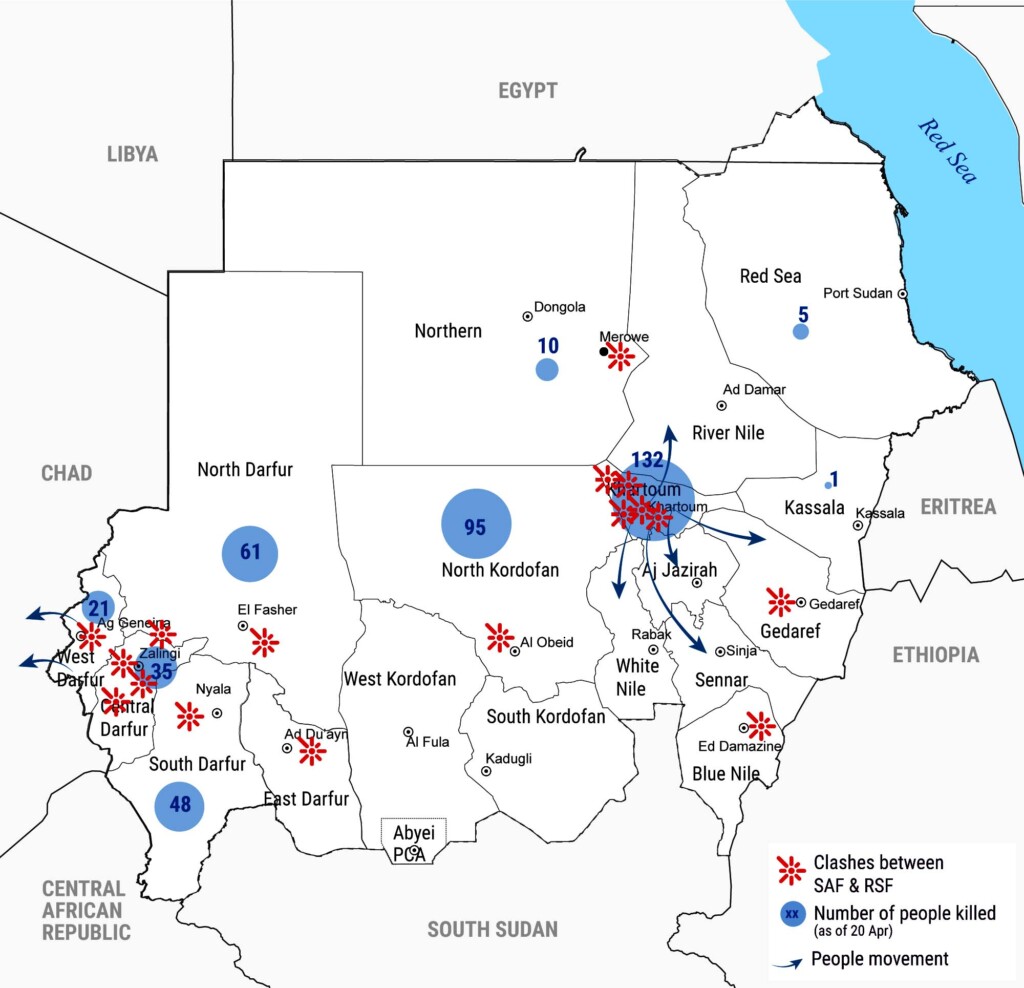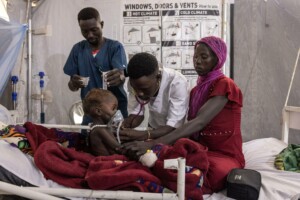OCHA: 400+ dead, mass displacements amid Sudan clashes

Map showing clashes and fatalities in current Sudan conflict on April 20 (OCHA)
KHARTOUM / EL OBEID / EL GEZIRA / SENNAR / WHITE NILE / RIVER NILE / EL GEDAREF –
At least 413 people have died across the country, with over 3,500 injured as result of the conflict between the Sudanese Armed Forces (SAF) and Rapid Support Forces (RSF), according to the UN Office for the Coordination of Humanitarian Affairs (OCHA) in Sudan.
The clashes, which are now entering its ninth consecutive day, have shown no sign of letting up in the capital of Khartoum, despite repeated calls for an Eid ceasefire from the highest levels within the international community.
In a report by OCHA on Friday, they state that an aid worker from the International Organisation for Migration (IOM) was killed two days ago after the “vehicle he was traveling in with his family south of El Obeid, North Kordofan, was caught in a crossfire between warring parties”, bringing the number of aid workers killed since April 15 to five.
Mass displacement
A startling increase in displacement due to fighting and dwindling basic commodities have also been reported across the states of Khartoum, El Gezira, Sennar, White Nile, River Nile, and El Gedaref, according to the IOM’s Displacement Tracking Matrix.
Reports estimated that between 7,500 and 8,000 people have been displaced from El Obeid and are currently seeking refuge, following fierce SAF-RSF clashes. Yesterday, Radio Dabanga reported that an attack by the RSF on two police stations left 20 policemen dead, including three senior officials. Local sources reported that both sides used heavy weapons, leaving several civilians dead and injured, as well as number of houses in the vicinity damaged by heavy artillery use.
In North Darfur’s capital of El Fasher, an estimated 10,000 to 20,000 displaced people, most of whom were women and children, arrived in Chad on Friday. South Sudan’s IOM representative in Juba Peter Van Der Auweraert said that at least 2,000 people arrived in the capital today, according to Al Jazeera. He added that, they expected more vulnerable people to come at a later stage, as many of the people who made it to Juba “had the means to make it here”.
Humanitarian situation
Following the suspension of humanitarian operations due to various aid workers being killed, as well as the near-impossible ground situation impeding their activity, local civil society networks have since provided aid.
“Neighbourhood committees in multiple locations have established emergency rooms to provide basic healthcare, given the closure of many hospitals,”, according to OCHA.
“Several committees are also supporting the coordination of civilian evacuations from areas that have been hardest-hit by the conflict.”











 and then
and then